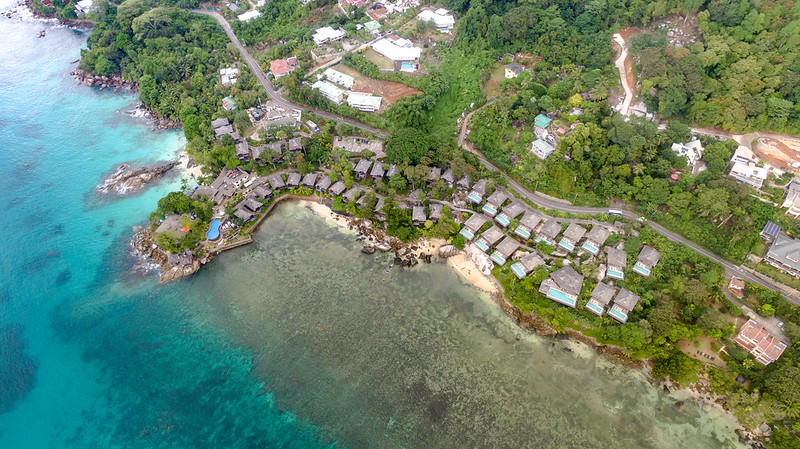Small island states are sinking, and it’s not just from sea level rise: we are sinking in debt, exacerbated by the collapse of our tourist industries.
We are at a high risk of entrenching our public debt vulnerability, and the result could turn back development by decades.
The High Level Political Forum (HLPF) 2020 at the UN finishes up this week, and we have called on leaders to address “debt sustainability” to help us out of this crisis.
It’s not difficult to see how we got here. By our very nature, small island developing states (Sids) are highly vulnerable to global exogenous shocks. Our narrow resource bases, remoteness, dependence on food imports, and limited ability to benefit from economies of scale ensure this.
Pre-Covid, we were barely keeping afloat, battling worsening environmental vulnerabilities due to climate change. The pandemic has definitively tipped the scales and we find ourselves in the midst of a perfect storm of debt, pandemic and ongoing climate impacts.
Climate news in your inbox? Sign up here
The global lockdown has cut our legs from under us, collapsing our tourism industries, which account for up to 40% of GDP in many of our member states. Compared to a global contraction of around 4.9%, according to the UN, some small island states will see a contraction of their GDP of 8-15% in the second half of 2020. Our external debt has nearly doubled since 2011. Almost a quarter of our export earnings still go towards servicing our annual external public debt obligations.
The dearth of effective global solutions to help us out of this quagmire is worrying. Instead, we are left to navigate a minefield of bureaucratic frameworks and institutions, in which we are under-represented, resulting in Sids bearing disproportionate opportunity costs, and facing intransigent power imbalances.
We lack liquidity, we lack fiscal space and we lack the leverage to revise the terms by which we can access concessional finance or restructure debt. In the short term, the eligibility criteria for such access has to be reexamined as soon as possible.
Debt service suspension may also be necessary but it’s only a temporary solution. More systematic, transparent and coordinated steps towards restructuring external debt obligations will be required in the medium term.
Saudi Arabia censors fossil fuel subsidy discussion as G20 host
Specifically, we are calling on the international financial institutions and community to work with us to:
- re-examine their eligibility criteria for Sids’ access to concessional loans and grants.
- suspend debt service on public external debt – or extend temporary standstills on external public debt for at least a two-year period, for those that request it.
- allow private creditors to join in debt suspension initiatives to ease the strain on official sources of debt relief and provide a more holistic management of the crisis.
- negotiate in the medium term, a multilateral debt workout mechanism to reduce external debt to a sustainable level.
- address the pressing challenges of de-risking and maintaining critical correspondent banking relationships in Sids. In our efforts to bolster future economic stability, it is imperative that Sids can effectively engage in the global financial system.
- in the longer term, undertake a comprehensive Sids vulnerability assessment.
- design a toolkit of alternative solutions which explores innovative financial instruments such as debt swap mechanisms, to contribute to long-term and comprehensive solutions towards debt sustainability.
Aligning Covid-19 recovery packages with the Paris Agreement is also critical for long term sustainability. What is required to build resilience and recover better from the pandemic can dually serve Sids in building resilience to face the unrelenting and growing impacts of the climate crisis.
Every action delayed is a future left more uncertain.
It is also why since the outset of this pandemic, the Alliance of Small Island States has remained steadfast in our commitment to keeping the drumbeat of climate ambition alive, and why we continue to push, most recently at the 4th Ministerial on Climate Action (MOCA), for the international community, particularly the industrialized nations, to re-commit to the goals of the Paris Agreement, and meet the 2020 deadline for delivering new and more ambitious climate targets.
It is disappointing to see so few industrialized nations actually committing to deliver enhanced and more ambitious 2030 Paris climate targets this year. We congratulate Jamaica on the recent submission of their enhanced climate plan. Once again, #SIDSLead.
We have taken up the responsibility to lead and will continue to do so, but we cannot do it alone. 2020 is supposed to be a “year of ambition,” and we hope it doesn’t become another year for delay and excuses.
Lois Young is the permanent representative of Belize to the UN and chair of the Alliance of Small Island States
